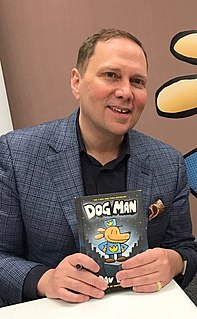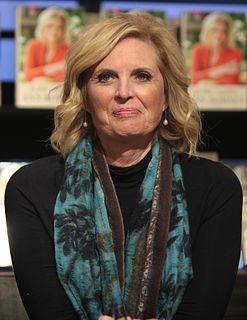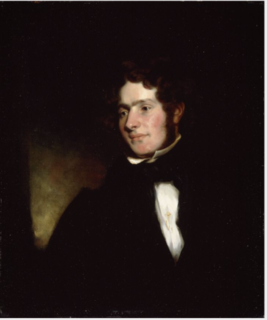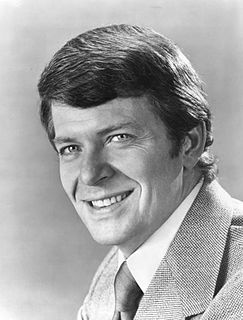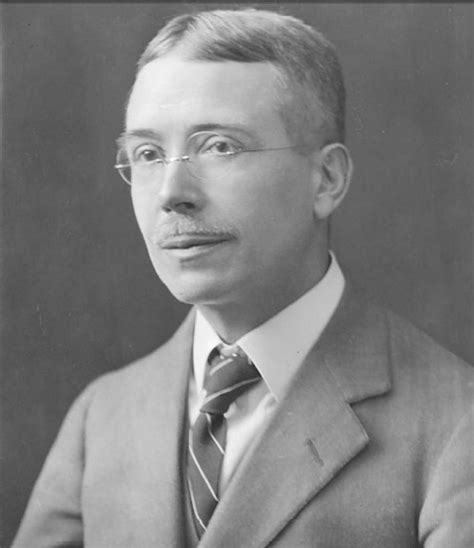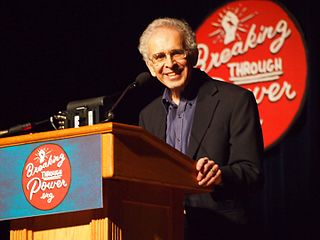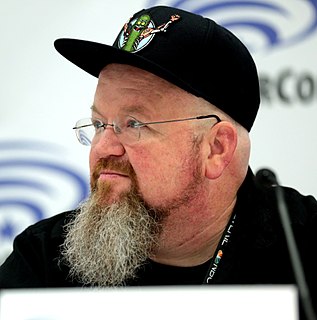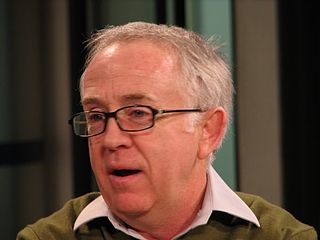Top 258 Chapters Quotes & Sayings - Page 4
Explore popular Chapters quotes.
Last updated on April 16, 2025.
Writing a book is something I actually feel like I could do. I don't know when that would happen, but I feel like if the right idea strikes, whether it be short stories or a novel or even a memoir that would be more substantial than most of the comedian memoirs people put out where it's big font and all the chapters are like ten pages long.
Nothing can now be believed which is seen in a newspaper. Truth itself becomes suspicious by being put into that polluted vehicle... Perhaps an editor might begin a reformation in some such way as this. Divide his paper into four chapters, heading the 1st, Truths. 2d, Probabilities. 3d, Possibilities. 4th, Lies. The first chapter would be very short.
Faulkner's 'As I Lay Dying' had an immense effect on me, and most of my novels bear the burn marks of this experience, those short chapters with their conflicting points of view, truth expressed by multiple perspectives. The other attractive thing about 'As I Lay Dying' was the way it gave rich voices to the poor.
My favourite book as a child was an old 'Newne's Children's Encyclopaedia' which my grandfather had bought just before World War II and donated to our family after seeing how interested we were in it. Each volume had special chapters called 'Things Boys can Do.' My brothers and I would pick out interesting projects.
My goal with The Adventures of Captain Underpants was to invent a style which was almost identical to that of a picture book - in a novel format. So I wrote incredibly short chapters and tried to fill each page with more pictures than words. I wanted to create a book that kids who don't like to read would want to read.
People who blame the Bible for the modern destruction of nature have failed to see its delight in the variety and individuality of creatures and its insistence upon their holiness. But that delight-in, say, the final chapters of Job or the 104th Psalm-is far more useful to the cause of conservation than the undifferentiating abstractions of science... Reverence gives standing to creatures, and to our perception of them, just as the law gives standing to a citizen.
If pregnancy were a book, they would cut the last two chapters. The beginning is glorious, especially if you're lucky enough not to have morning sickness and if, like me, you've had small breasts all your life. Suddenly they begin to grow, and you've got them, you've really got them, breasts, darling breasts, and when you walk down the street they bounce, truly they do, they bounce bounce bounce.
I try to outline. I'm a lazy outliner. I will put the points down of each chapter or series of chapters, but it always changes. For me it's a place of evolution. I don't really know who the characters are. I don't really know what the story is. I outline and that really just gets me moving. It's like I'm drawing up fake maps, but they turn out to be correct.
In everything, no matter what it may be, uniformity is undesirable. Leaving something incomplete makes it interesting, and gives one the feeling that there is room for growth. Someone once told me, "Even when building the imperial palace, they always leave one place unfinished." In both Buddhist and Confucian writings of the philosophers of former times, there are also many missing chapters.
I'm aware that many of my friends will be saddened and shocked, or shock-saddened, over some of the chapters in 'The Catcher in the Rye.' Some of my best friends are children. In fact, all my best friends are children. It's almost unbearable for me to realize that my book will be kept on a shelf, out of their reach.
There are television sets in every home, every restaurant, every hotel room, every shopping mall-now they’re even small enough to carry in your pocket like electronic rosaries. It is an unquestioned part of everyday life. Kneeling before the cathode ray God, with our TV Guide concordance in hand, we maintain the illusion of choice by flipping channels (chapters and verses). It doesn’t matter what is flashing on the screen-all that’s important is that the TV stays on.
There is something I keep wanting to say about reading short stories. I am doing it now, because I many never have another occasion. Stories are not chapters of novels. They should not be read one after another, as if they were meant to follow along. Read one. Shut the book. Read something else. Come back later. Stories can wait.
It is essential that God created men and women to be one, as it is said in the first chapters of the Bible. So I think even if our culture is against marriage as essential form of relations between human beings, between women and men. I think our nature is always present, and we can understand it if we will understand it.
I think we have got to start again and go right back to first principles. The argument I shall advance, surprising as it may seem coming from the author of the earlier chapters, is that, for an understanding of the evolution of modern man, we must begin by throwing out the gene as the sole basis of our ideas on evolution. If there is only one Creator who made the tiger and the lamb, the cheetah and the gazelle, what is He playing at? Is he a sadist who enjoys spectator blood sports? ... Is he manuvering to maximize David Attenborough's television ratings?
There are innumerable writing problems in an extended work. One book took a little more than six years. You, the writer, change in six years. The life around you changes. Your family changes. They grow up. They move away. The world is changing. You're also learning more about the subject. By the time you're writing the last chapters of the book, you know much more than you did when you started at the beginning.
'London' is a gallery of sensation of impressions. It is a history of London in a thematic rather than a chronological sense with chapters of the history of smells, the history of silence, and the history of light. I have described the book as a labyrinth, and in that sense in complements my description of London itself.
London' is a gallery of sensation of impressions. It is a history of London in a thematic rather than a chronological sense with chapters of the history of smells, the history of silence, and the history of light. I have described the book as a labyrinth, and in that sense in complements my description of London itself.
In a novella, a whole lot of crap can happen, and you can build momentum and suspense and leave room for a surprise or three. Stories are cut down to the most essential elements, and novels (this might be an unfair generalization on my part) are big fat clumsy efforts where the reader can snooze for a couple chapters and miss nothing of consequence. Hence my love for the middle way.
When I write, I never think of segments as chapters; I think of them as scenes. I always visualize them in my mind. Then I try to get the scene down on paper as closely as I can. That's the one thing that readers don't see - what you have in your mind. The reader can only see what you get on the page.
I began researching and writing what I intended as a book-length essay entitled Fascination and Liberation, exploring the question of whether there is a conflict between creativity and the Eastern form of enlightenment. I don't know if I'll ever finish that essay, because I had an experience, after I'd written two or three chapters, in which it seemed to me that my psychic antibodies decisively rejected Buddhism. Interestingly, the rejection felt as if it happened in Zen terms.
I speak as a man of the world to men of the world; and I say to you, Search the Scriptures! The Bible is the book of all others, to be read at all ages, and in all conditions of human life; not to be read once or twice or thrice through, and then laid aside, but to be read in small portions of one or two chapters every day, and never to be intermitted, unless by some overruling necessity.
John Lane has long been recognized as one of the South's finest poets and memoirists. This debut establishes him as one of our finest novelists as well. His poet's eye for detail seamlessly merges with a born storyteller's gift for narrative. Fate Moreland's Widow gives voice to those who endured one of the most painful and neglected chapters in American history.
When it comes to the whole debate today over evolution versus creation, Jesus affirmed the early chapters of Genesis were accurate when He said, "Have you not read, that He who created them from the beginning made them male and female" (Matthew 19:4). Adam and Eve didn't come on the scene after billions of years of mutations and evolution. No. God created them all the way back in the beginning-just like Moses reported in the Book of Genesis.
I'll force myself to sit down and read a couple of chapters of a great book or I'll force myself to sit and listen to some amazing music or I'll go see a play. I find that watching or experiencing other forms of art gets my brain in action. It makes me feel connected to the creative energies and then that tends to get things going.
We must be able to appreciate and enjoy the places where we tarry and yet pass on without anguish when we are called elsewhere. In our spiritual development we are often required to pull up roots many times and to close many chapters in our lives until we are no longer attached to any material thing and can love all people without any attachment to them.
This book is intended for use in English courses in which the practice of composition is combined with the study of literature. It aims to give in a brief space the principal requirements of plain English style. It aims to lighten the task of instructor and student by concentrating attention (in Chapters II and III) on a few essentials, the rules of usage and principles of composition most commonly violated. The numbers of the sections may be used as references in correcting manuscript.
The most superficial fact regarding the 'Discourses,' the fact that the number of its chapters equals the number of books of Livy's 'History,' compelled us to start a chain of tentative reasoning which brings us suddenly face to face with the only New Testament quotation that ever appears in Machiavelli's two books and with an enormous blasphemy.
The best way is to read it all every day from the start, correcting as you go along, then go on from where you stopped the day before. When it gets so long that you can't do this every day read back two or three chapters each day; then each week read it all from the start. That's how you make it all of one piece.
I ate them like salad, books were my sandwich for lunch, my tiffin and dinner and midnight munch. I tore out the pages, ate them with salt, doused them with relish, gnawed on the bindings, turned the chapters with my tongue! Books by the dozen, the score and the billion. I carried so many home I was hunchbacked for years. Philosophy, art history, politics, social science, the poem, the essay, the grandiose play, you name 'em, I ate 'em.
The book Dynamic Programming by Richard Bellman is an important, pioneering work in which a group of problems is collected together at the end of some chapters under the heading "Exercises and Research Problems," with extremely trivial questions appearing in the midst of deep, unsolved problems. It is rumored that someone once asked Dr. Bellman how to tell the exercises apart from the research problems, and he replied: "If you can solve it, it is an exercise; otherwise it's a research problem."
Allowing yourself to stop reading a book - at page 25, 50, or even, less frequently, a few chapters from the end - is a rite of passage in a reader's life, the literary equivalent of a bar mitzvah or a communion, the moment at which you look at yourself and announce: Today I am an adult. I can make my own decisions.
It's always hard, when introducing readers to a new world/set of rules, not to lay it all out manual-style in the opening chapters but make sure to put the action and the characters at the front. If people don't become invested in them and in the story, the world in which it's set will become a burden.
As I learned from chapters past, it's important to try and stay in the chapter that you're in, and enjoy it while it's lasting. Not be constantly worrying about where this step will take you - living in the potential future. Like a good meal. Like a good chef's tasting meal. You don't want to wonder what's next while you're eating the foie gras.
...The ACS raised over $180 million last year through its network of 58 Divisions and 3,000 local Chapters. The Society's major public campaign is aimed at reducing smoking and cancers related to it. Yet...the ACS has but a single (lobbyist) in Washington DC. The industry-supported Tobacco Institute, on the other hand, has a ten million dollar budget which supports dozens of Washington staff.
I believe that if we could see the chapters that are missing from the book [The Autobiography of Malcolm X], we would gain an understanding as to why perhaps - perhaps - the F.B.I., the C.I.A., the New York Police Department and others in law enforcement greatly feared what Malcolm X was about, because he was trying to build a broad - an unprecedented black coalition across the lines of black nationalism and integration. And in way, it presages 30 years ahead of time, the Million Man March.
When certain concepts of TeX are introduced informally, general rules will be stated; afterwards you will find that the rules aren't strictly true. In general, the later chapters contain more reliable information than the earlier ones do. The author feels that this technique of deliberate lying will actually make it easier for you to learn the ideas. Once you understand a simple but false rule, it will not be hard to supplement that rule with its exceptions.
I'm aware that many of my friends will be saddened and shocked, or shock-saddened, over some of the chapters in 'The Catcher In the Rye.' Some of my best friends are children. In fact, all my best friends are children. It's almost unbearable for me to realize that my book will be kept on a shelf out of their reach.
As any war veteran will tell you, there is a vast difference between preparing for battle and actually facing battle for the first time. You can be told that reading Victor Hugo will sap your will to live, but you can't understand what it means until you've read a few chapters and your eyes are glazed over and someone has to revive you with a defibrillator.
I was raised in a religion that I never felt embraced me. That wasn't her fault. I had this amazing childhood. My mother is of her generation. If I'm going to ask her to accept me exactly as I am, I have to give her the same. She has read part of the book, but my sisters told her which chapters not to read!
Ideas come at any moment -- except when you demand them. Most ideas come while I'm physically active, at the gym, with friends, gardening, so I always carry pen and paper. My first draft is always written in longhand. But once the first dozen chapters, more like short stories, are written, then momentum builds until I can't leave the project until it's done.
(Mariners) have written one of its most brilliant chapters. They have delivered the goods when and where needed in every theater of operations and across every ocean in the biggest, the most difficult and dangerous job ever undertaken. As time goes on, there will be greater public understanding of our merchant's fleet record during this war.
So little have thee first Christians (who despoiled the Jews of their Bible) understood the first four chapters of Genesis in their esoteric meaning, that they never perceived that not only was no sin intended in this disobedience, but that actually the 'Serpent' was 'the Lord God' himself, who, as the Ophis, the Logos, or the bearer of divine creative wisdom, taught mankind to become creators in their turn.
Don´t be unnecessarily burdened by the past. Go on closing the chapters that you have read; there is no need to go back again and again. And never judge anything of the past from the new perspective that is arriving, because the new is new, incomparably new and the old was right in its own context, and the new is right in its own context.
I hear people all the time say, well I read through the Bible last year. Well, so what? I'm all for reading through the Bible. But how much of that got on the inside, or did they just cover three more chapters today? I would never discredit reading the Scriptures, but it is important to meditate on it.
With Ibrahim al-Koni, what I figured out was - and you'll see this in his novels - if your time is limited, make the unit of the chapters small so that you can finish one a day, at least in the first draft. Once you have the first draft it's living, and you can coax it to grow and trim it and reshape it and so on. But get that first draft. I think if I'd gone to an MFA program and learned that, it would have been money well spent. But translation has been that for me.







